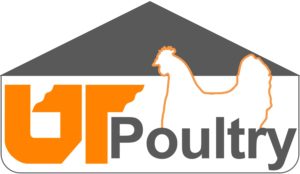A strain of highly pathogenic avian influenza (HPAI) has been found in a backyard poultry flock in western Tennessee. To protect backyard and commercial poultry flocks across the state, the Tennessee state veterinarian has ordered an immediate halt to all poultry shows, exhibitions, and sales statewide.
This was a difficult decision, especially in the middle for fair season and ongoing 4-H Chick Chain shows. Everyone at the Tennessee Department of Agriculture (TDA) understands the importance of livestock competition and sales. However, HPAI is known to be deadly to domestic poultry such as chickens and turkeys. Therefore, because poultry touches thousands of lives across Tennessee, from backyard poultry keepers to the large commercial poultry industry, it is critical to move quickly to stop the spread of the virus.
TDA is working closely with state and federal partners to coordinate a response to the finding and strict protocols for quarantine, testing, disposal, cleaning, disinfection, and monitoring are in place and being followed. You can help by practicing good biosecurity that is key to preventing the spread of avian influenza. Key steps to a strong biosecurity program include:
• isolate your birds from all other birds (wild and domestic),
• ensure proper sanitation,
• control and limit traffic flow near your birds,
• recognize disease symptoms, and
• know whom to call if you observe sudden sickness and mortality in your flock.
HPAI does not pose a food safety risk and no infected poultry is ever allowed to enter the food supply. Poultry and eggs are safe to eat when handled and cooked properly. The risk of human infection with avian influenza during an outbreak is extremely low. More information concerning the TDA response to this incident and resources for flock owners can be found online at www.tn.gov/agriculture/businesses/animals/animal-health/avian-influenza.html.
You can help keep Tennessee poultry safe. Owners of backyard and commercial poultry flocks are encouraged to closely observe their birds and report any sudden increase in the number of sick birds or bird deaths to the office of the state veterinarian at 615-837-5120 or by calling USDA at 1-866-536-7593.
